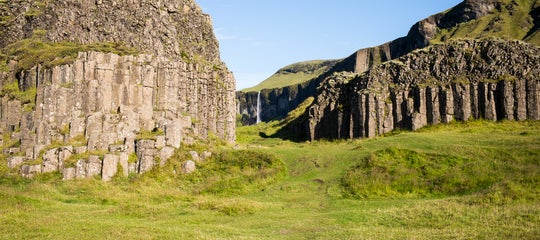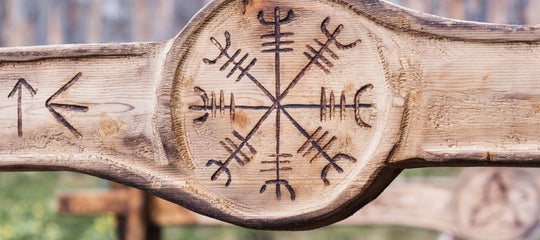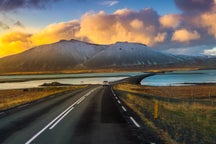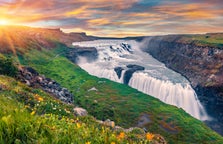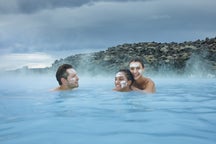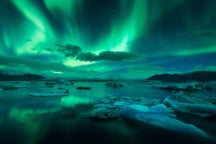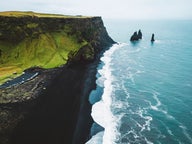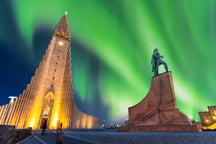Meet the Icelanders who call this island home and discover what makes them unique. In lively city streets and peaceful coastal villages, every encounter offers a glimpse into their traditions, values, and modern way of life. Getting to know them is one of the most rewarding parts of visiting Iceland.
Icelanders live in a land shaped by dramatic landscapes and shifting seasons. They have learned to adapt, work together, and balance old customs with fresh ideas. This mix is clear in their music, festivals, and in the friendly conversations you may have along the way.
Why You Can Trust Our Content
Guide to Iceland is the most trusted travel platform in Iceland, helping millions of visitors each year. All our content is written and reviewed by local experts who are deeply familiar with Iceland. You can count on us for accurate, up-to-date, and trustworthy travel advice.
There are many ways to connect with them during your trip. You might take Iceland vacation packages that highlight cultural stops, arrange car rentals to reach smaller towns, or take self-drive tours that bring you beyond the main tourist spots. Each approach offers a chance to understand the people who make Iceland what it is.
Things To Know About Icelanders
-
Contrary to their reputation as aloof and indifferent, Icelandic people are cordial and good-natured.
-
People in Iceland work hard from an early age and rarely miss a chance to be productive.
-
Iceland emphasizes equality and embraces different sexualities and lifestyles.
-
Most Icelanders speak both Icelandic and English, making it easy for tourists to communicate.
Icelandic People Are Friendly and Welcoming
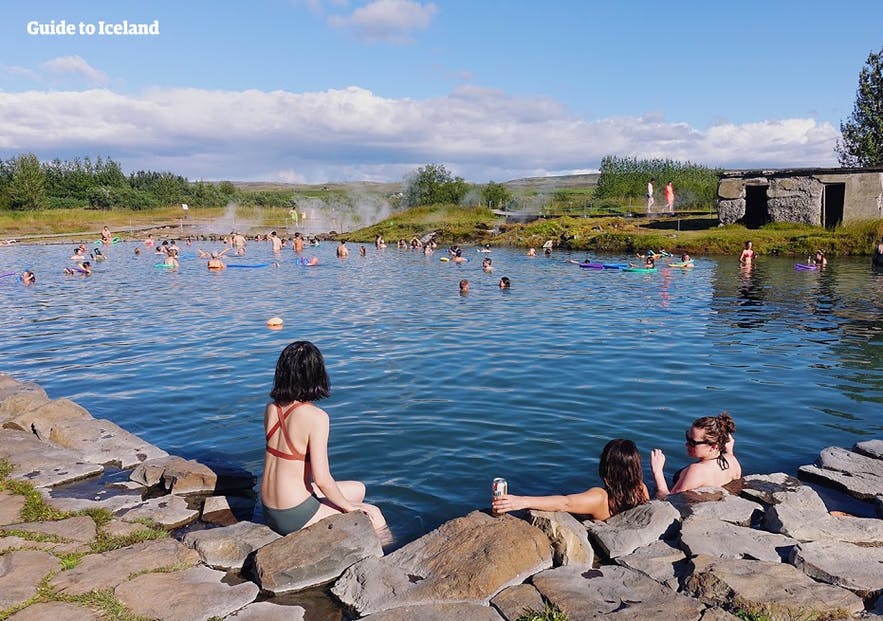
A common Icelandic stereotype is that the people are cold and inhospitable. This couldn’t be further from the truth.
Most Icelanders are friendly and welcoming. While often reserved at first, they open up once you engage them in conversation. Don’t be afraid to ask strangers for simple things like directions or recommendations. Icelandic people are approachable and helpful.
You’ll likely notice Icelanders coming out of their shells more in bars, cafes, or clubs. They are a pleasure to be around in these settings.
- See also: Top 9 Beers in Iceland and Happy Hour | Reykjavik's Cheapest Bars
A Strong Work Ethic
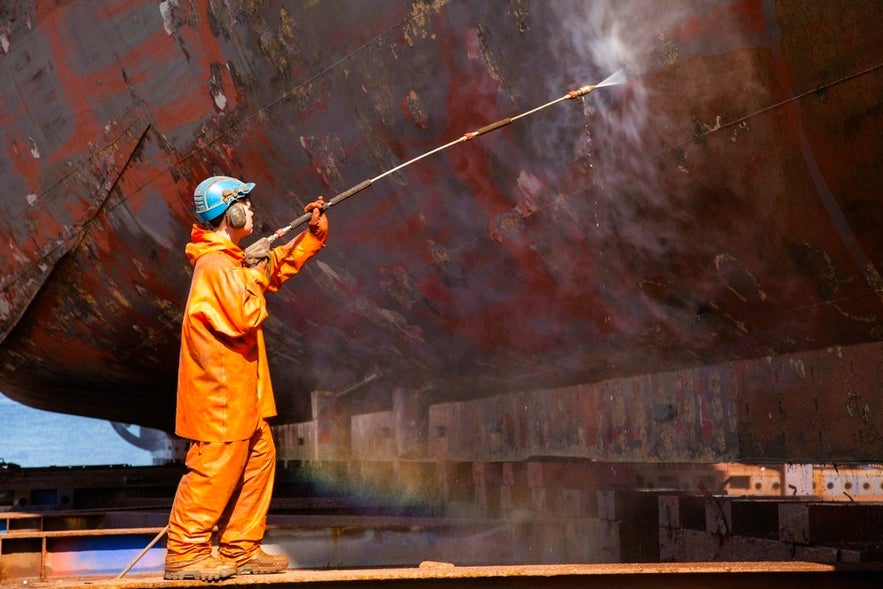 Icelandic people are generally hardworking. It’s not unusual for people to hold two or three jobs.
Icelandic people are generally hardworking. It’s not unusual for people to hold two or three jobs.
Most Icelanders start working at an early age. The government provides summer jobs to kids aged 13 and up who are hungry for work experience. Teenagers eager to learn financial independence typically have a part-time job alongside their studies.
Icelanders stay busy. On days off, they hike mountains, play sports, or engage in some sort of activity. They rarely waste time.
There’s a good chance this strong work ethic stems from Iceland’s centuries-long struggle with harsh natural conditions. For generations, Icelanders endured extreme weather, volcanic activity, and isolation, surviving primarily through farming and fishing.
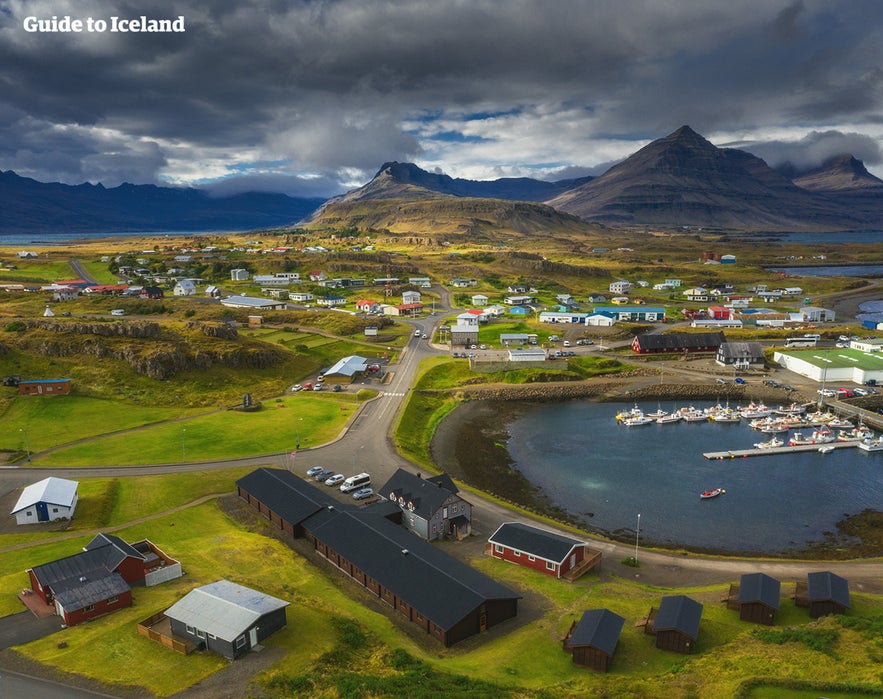 This enduring work ethic is deeply woven into Icelandic life, shaping how communities grow, adapt, and support each other. It influences everything from how towns are built to how neighbors interact, creating a culture where cooperation and resilience go hand in hand.
This enduring work ethic is deeply woven into Icelandic life, shaping how communities grow, adapt, and support each other. It influences everything from how towns are built to how neighbors interact, creating a culture where cooperation and resilience go hand in hand.
Nearly the entire population worked the land or tended livestock, fostering a culture of resilience and self-reliance that persists today.
It may also be a result of Icelanders’ “small nation complex” and their drive to prove themselves on the global stage. They constantly compare themselves to other (especially Nordic) countries. Being the best at everything is important to this proud culture.
Equality in Iceland
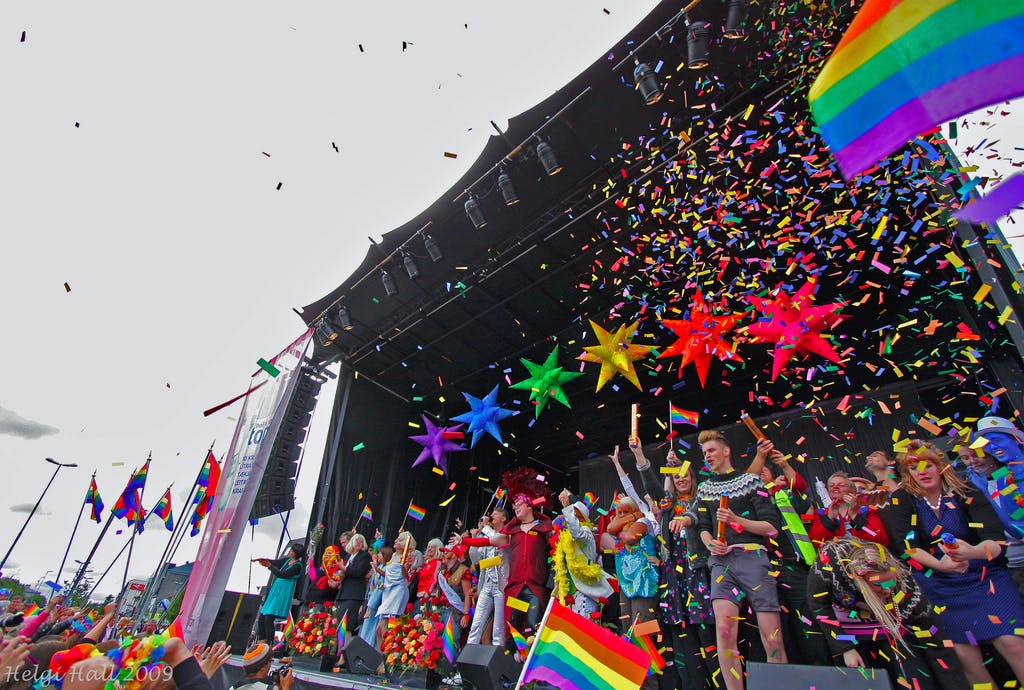
Iceland ranks as one of the top countries for gender equality. In 1980, it became the first country to have a nationally elected female president, Vigdís Finnbogadóttir. In 2009, Icelanders elected the world's first openly gay leader as their prime minister, Jóhanna Sigurðardóttir.
Icelandic people accept and celebrate diverse sexualities and genders, same-sex marriages, and same-sex adoptions. The country boasts a thriving queer scene, highlighted each August by the famous Reykjavik Pride Festival.
Language and Communication
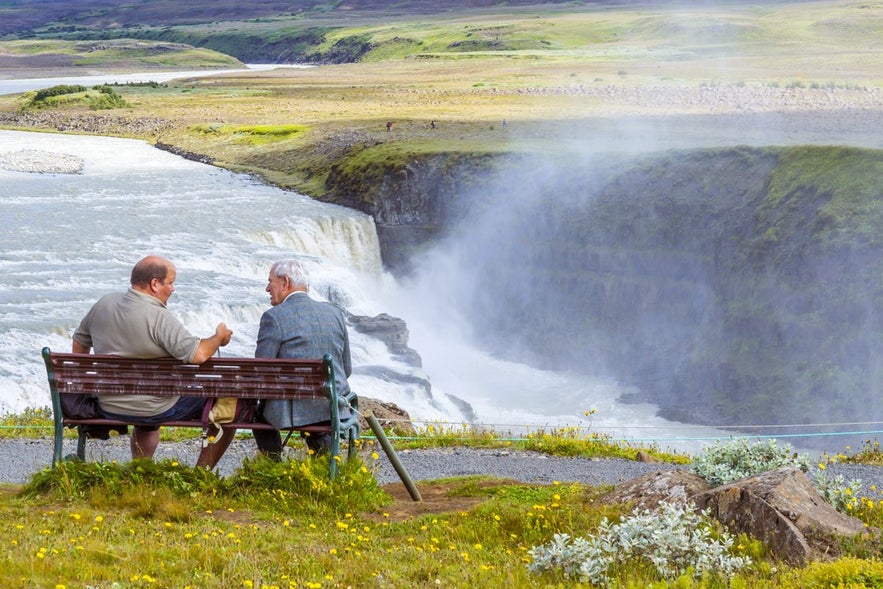 Many Icelanders speak several languages. English is the most common second language, especially for younger generations.
Many Icelanders speak several languages. English is the most common second language, especially for younger generations.
One Nordic language (most commonly Danish) and English are mandatory subjects in school, with an additional choice between French, German, and sometimes Spanish. Many students go abroad for higher education or exchange programs.
Icelandic people understand that most foreigners don’t speak their native tongue—it’s one of the most complicated languages to learn. They typically switch to a different language to accommodate visitors.
When it comes to communication, Icelanders get straight to the point and are very informal in their word choice, which can be surprising for many travelers.
In spite of usually being bilingual, they’re proud of their language. They’ve taken measures to preserve it, creating new words for every invention that enters the country.
- See also: Icelandic Literature for Beginners
A Close-Knit Society
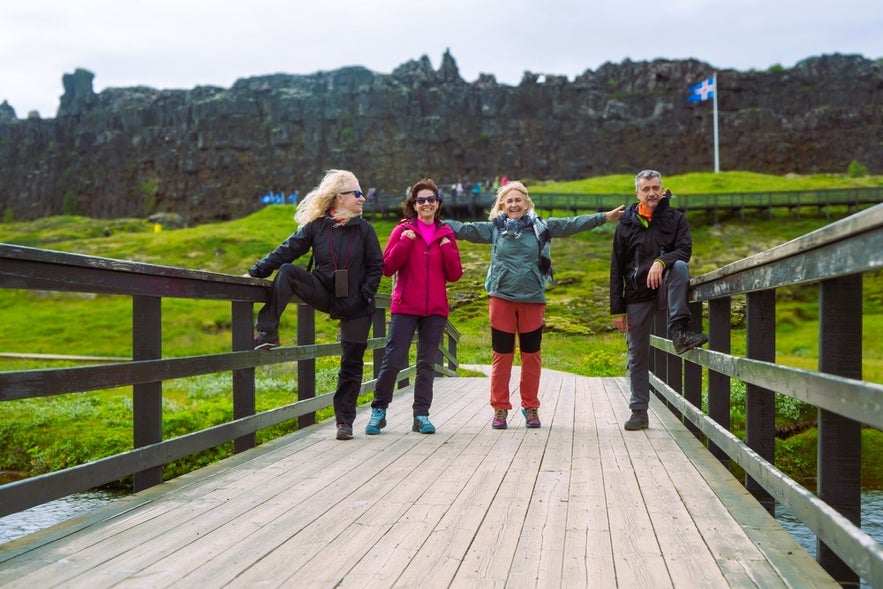 Iceland has a population of less than 400,000 people. This supports close connections and relationships.
Iceland has a population of less than 400,000 people. This supports close connections and relationships.
Ask an Icelander if they’ve met Björk, and there’s a good chance they’ll say their brother was in her class or that she’s their cousin. Everyone has met the president, the former president, or the first lady and maybe had coffee with one of them.
If an Icelander makes friends with two different groups, someone in one group will likely know someone from the other. Most introductions between strangers revolve around discovering common acquaintances.
Icelandic families are also close. Relatives often live near each other. However, they don’t view marriage as an essential part of the family dynamic.
How Icelandic Names Work
One of the most distinctive aspects of Icelandic culture is its naming system. Unlike most Western countries, Icelanders don’t typically use inherited family surnames. Instead, they follow a patronymic (and occasionally matronymic) system, where a person’s last name reflects the first name of a parent, usually the father.
For example, if a man named Jón has a son named Ólafur, the child’s full name would be Ólafur Jónsson, meaning “Ólafur, son of Jón.” If Jón has a daughter named Anna, she would be Anna Jónsdóttir, or “Anna, daughter of Jón.” In some cases, especially in modern families, children may use their mother’s name instead.
This system means that siblings can have different last names, and family names don’t pass down through generations in the traditional sense. Icelandic women also do not change their last names when they marry, as surnames are not family-based but personal.
The result is a deeply personal and culturally unique way of naming that reflects Iceland’s emphasis on individuality and heritage.
A Focus on Fashion, Art, and Music
People in Iceland are creative and fashionable. Trends come and go quickly in the tiny country, and it’s normal to see people wearing similar attire.
Icelandic people hold art, theater, dance, music, and literature in high regard. The country is home to many famous people, including talented musicians, artists, and authors.
- Discover the fundamentals of the History of Reykjavik.
- Learn about the fascinating History of Iceland.
Explore Iceland’s Culture and People on Guided Tours
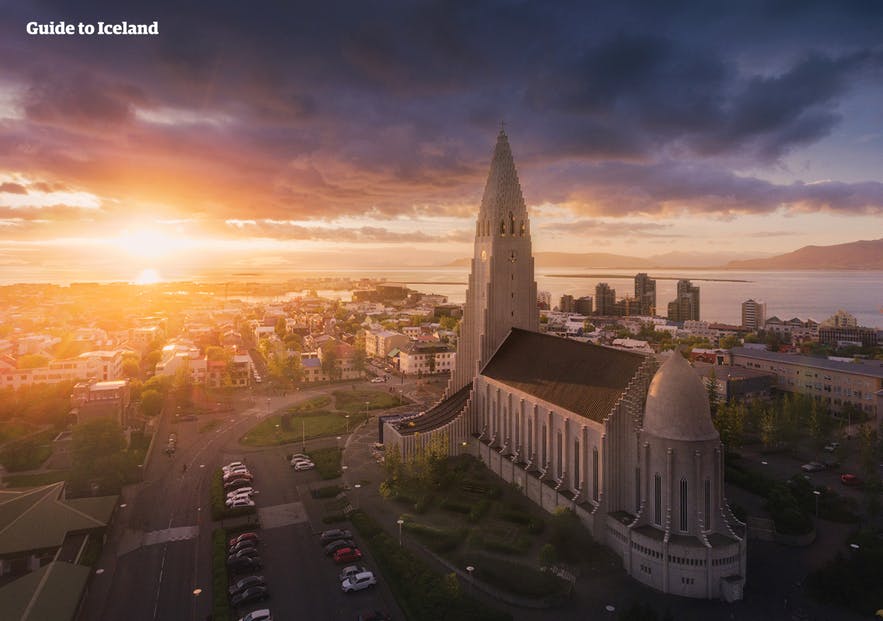 There’s a lot to discover during a trip to Iceland. Renting a car or booking self-drive tours is a perfect idea if you like to go at your own pace.
There’s a lot to discover during a trip to Iceland. Renting a car or booking self-drive tours is a perfect idea if you like to go at your own pace.
If you prefer to leave your adventure in the hands of experts, consider these culture tours:
-
Small-Group Walking Tour of Reykjavik's History & Culture — Discover the history, culture, and hidden stories of Iceland’s capital on a walking tour of Reykjavik, with stops at landmarks like Hallgrimskirkja, City Hall, and the Harpa Concert Hall.
-
Walking & Food Tour in Reykjavik — Savor traditional Icelandic cuisine on a delicious walking tour through Reykjavik, sampling local favorites like lamb, skyr, cheese, ice cream, and hot dogs while learning about the city’s culture, history, and hidden food spots from a knowledgeable local guide.
-
Folklore Walking Tour of Reykjavik — Explore the depths of Icelandic mythology with this amazing folklore walking tour around Iceland’s capital city, Reykjavik, and get a real insight into the lives of the legendary trolls, elves, and hidden people that are said to inhabit this land.
-
Viking Walking Tour of Reykjavik — Experience Reykjavik’s rich history, culture, and hidden gems on a small-group walking tour led by a Viking guide, exploring key landmarks, local legends, and the world’s oldest parliament for an engaging introduction to Iceland.
-
Reykjavik Beer & Schnapps Guided Walking Tour — Enjoy an unforgettable night out. You'll visit three local bars, sample ten craft beers or five Icelandic schnapps, and learn about Iceland’s quirky alcohol history with a fun and knowledgeable guide.
You can also choose from museum tours to help you get to know the country more.
FAQs About Shared Traits of Icelandic People
Ready to learn more about the people of this enchanting culture? Below are 10 frequently asked questions about Icelanders.
1. Are Icelandic people traditional?
While they value their history and traditions (especially things like storytelling, music, and holidays), they’re modern in their attitudes toward issues like gender equality, LGBTQ+ rights, and technology.
2. Are people from Iceland religious?
Iceland is not very religious today. Although most people are Lutheran, daily life tends to be more spiritual or cultural than religious. Belief in elves and hidden people is a famous part of Icelandic folklore.
3. Do Icelandic people value nature?
Absolutely. Nature is at the core of the country’s identity. Protecting the environment, respecting natural landscapes, and enjoying outdoor activities are central parts of life.
4. Do Icelandic people have similar physical traits?
Many Icelanders have Nordic features, including fair skin, light-colored eyes (especially blue or green), and blonde or light brown hair. Celtic ancestry also adds variety to the appearance of Icelandic people.
5. Are Icelanders independent?
Yes. Icelandic culture encourages self-reliance and resourcefulness. People grow up learning to handle challenges themselves, a tradition rooted in surviving the tough Icelandic environment.
6. What hobbies are popular in Iceland?
Outdoor activities like hiking, skiing, horseback riding, and swimming in geothermal pools are huge. Icelanders also love traveling, often taking winter vacations abroad.
7. How do Icelanders view education?
Education is valued. The country has a high literacy rate, strong public schooling, and a lot of respect for fields like literature and science.
8. What foods are important to Icelandic culture?
Traditional dishes include lamb, fresh seafood, and unique foods like fermented shark (hakarl) and skyr (a yogurt-like dairy product).
9. What’s the sense of humor like in Iceland?
Dry, witty, and sometimes dark. Icelanders love a good joke, often poking fun at themselves, the weather, or life’s absurdities.
10. Are Icelanders punctual?
Although Iceland has a relaxed vibe overall, being on time is important. They appreciate punctuality, especially for work or formal appointments.
Discovering the Heart of Iceland: Its People
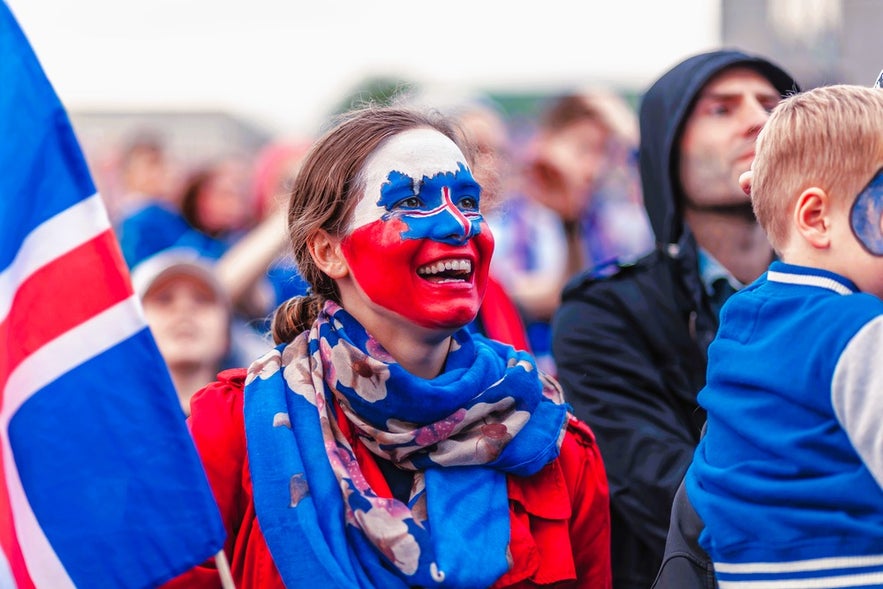 Icelandic people are as memorable as the country’s dramatic landscapes, leaving a lasting impression on all who visit. Their unique blend of warmth and hard work, coupled with a deep respect for equality and a vibrant arts scene, creates a culture unlike any on the planet. Tourists typically leave with the intention of visiting again.
Icelandic people are as memorable as the country’s dramatic landscapes, leaving a lasting impression on all who visit. Their unique blend of warmth and hard work, coupled with a deep respect for equality and a vibrant arts scene, creates a culture unlike any on the planet. Tourists typically leave with the intention of visiting again.
Have you had the chance to experience Icelandic culture firsthand? We'd love to hear your thoughts and stories in the comments below!



